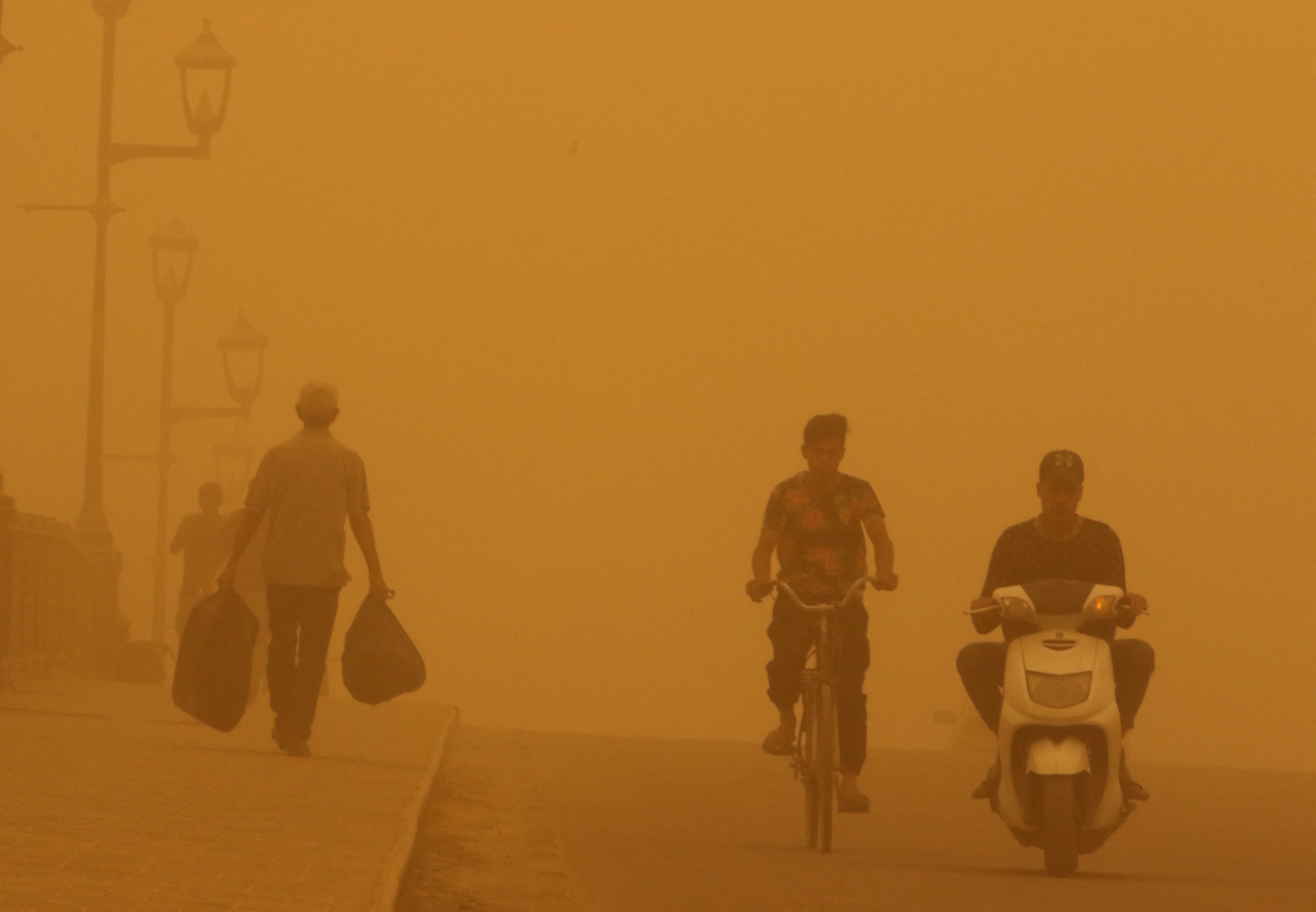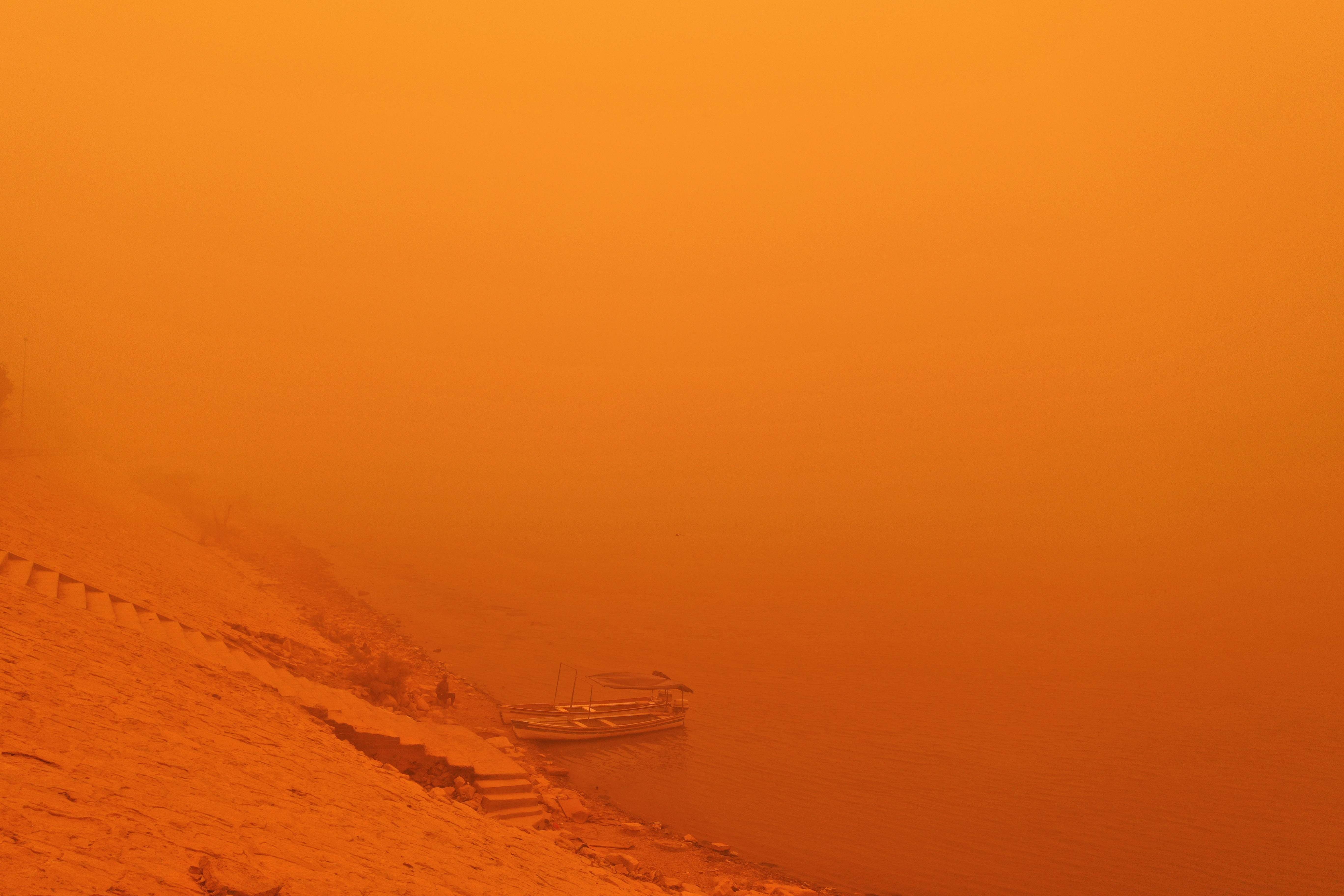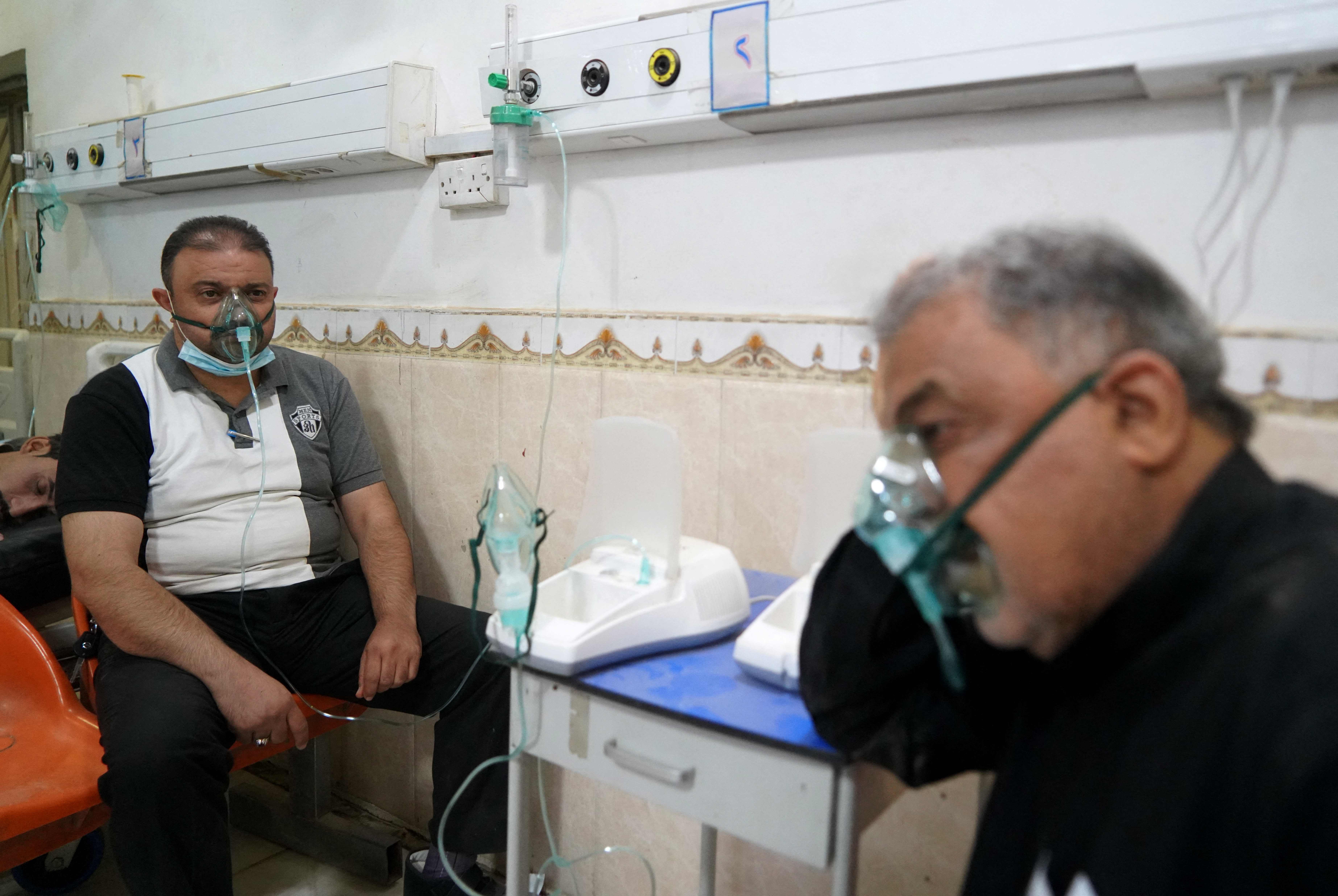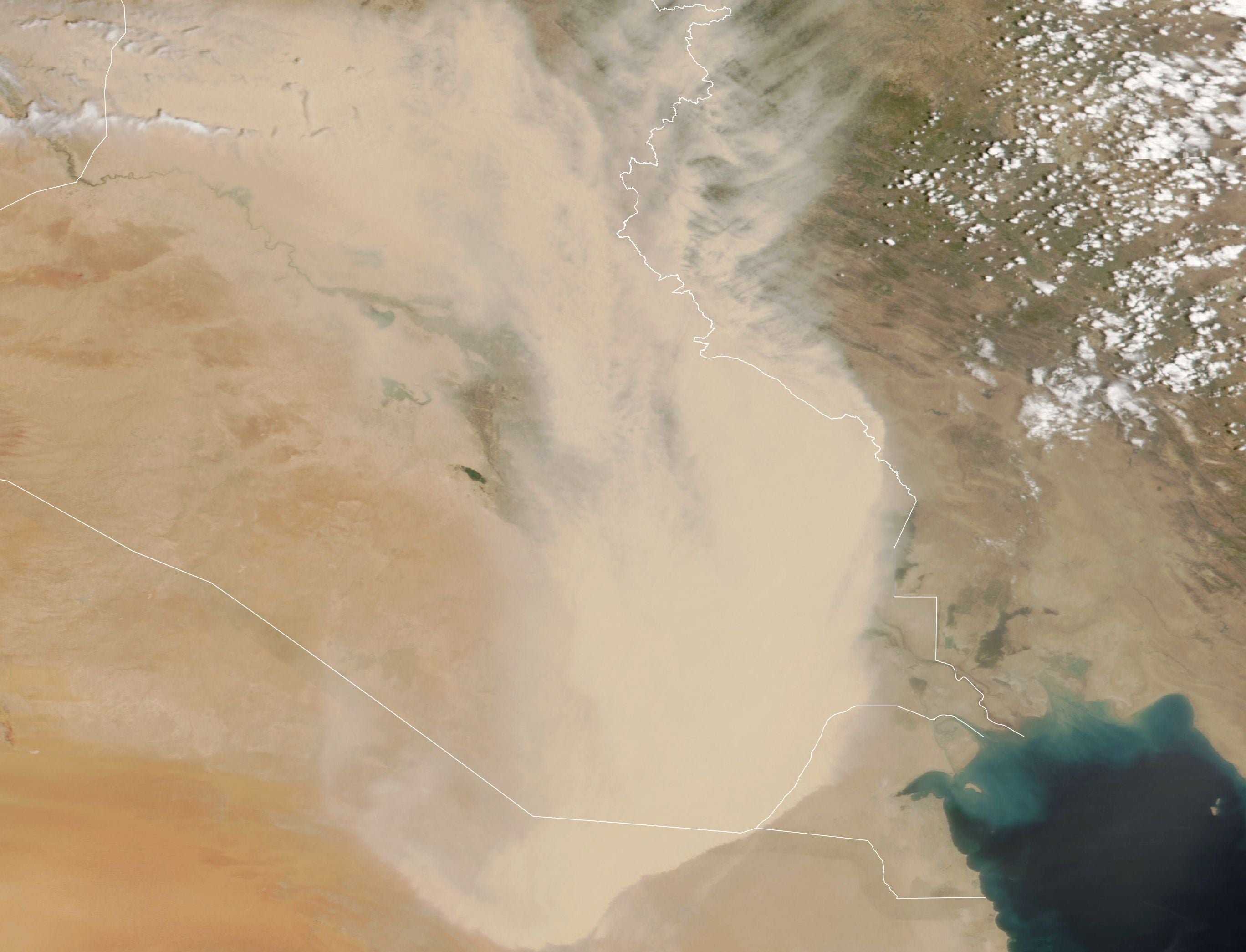Huge sandstorms sweep across Middle East, leading to closure of schools and government offices
Exact cause of sand and dust storms is not yet fully known
Your support helps us to tell the story
From reproductive rights to climate change to Big Tech, The Independent is on the ground when the story is developing. Whether it's investigating the financials of Elon Musk's pro-Trump PAC or producing our latest documentary, 'The A Word', which shines a light on the American women fighting for reproductive rights, we know how important it is to parse out the facts from the messaging.
At such a critical moment in US history, we need reporters on the ground. Your donation allows us to keep sending journalists to speak to both sides of the story.
The Independent is trusted by Americans across the entire political spectrum. And unlike many other quality news outlets, we choose not to lock Americans out of our reporting and analysis with paywalls. We believe quality journalism should be available to everyone, paid for by those who can afford it.
Your support makes all the difference.Sandstorms have engulfed several countries in the Middle East, leading to the closure of schools and government offices.
Blanketed with a thick layer of dust, several cities in Saudi Arabia, Bahrain, Iran and Iraq issued weather and traffic warnings as an orange hue enveloped them.
In the UAE, some cities recorded wind speeds of up to 40km, prompting authorities to issue a countrywide weather alert.
In Riyadh, drivers were warned to go slowly on highways as the Saudi capital observed a dramatic decline in visibility.
Up to 1,285 people in the city were sent to emergency hospital rooms after suffering from respiratory problems.
Neighbouring countries have been grappling with severe weather problems for more than a month now, as Iraq has experienced eight sand storms since mid-April.
Authorities ordered the closure of airports, schools and public offices across the country as the latest sandstorm hit the capital on Monday.




Up to 4,000 people were rushed to the hospital in Iraq after suffering from breathing problems.
Schools and government offices were also shut down in the Iranian capital of Tehran on Tuesday, as the city experienced a decline in air quality from the dust pollution. On Monday, airports in western Iran saw dozens of flights cancelled or delayed. This is the third severe sandstorm in Iran since mid-April.
In Syria, at least three people died along the border with Iraq because of the storm.
Though the exact cause of the sand and dust storms is not yet fully known, experts blame the frequency and intensity of the storms on overgrazing and deforestation. And they fear the phenomenon could only worsen as the climate crisis increasingly impacts regional weather patterns.
Additional reporting from the wires

Join our commenting forum
Join thought-provoking conversations, follow other Independent readers and see their replies
Comments